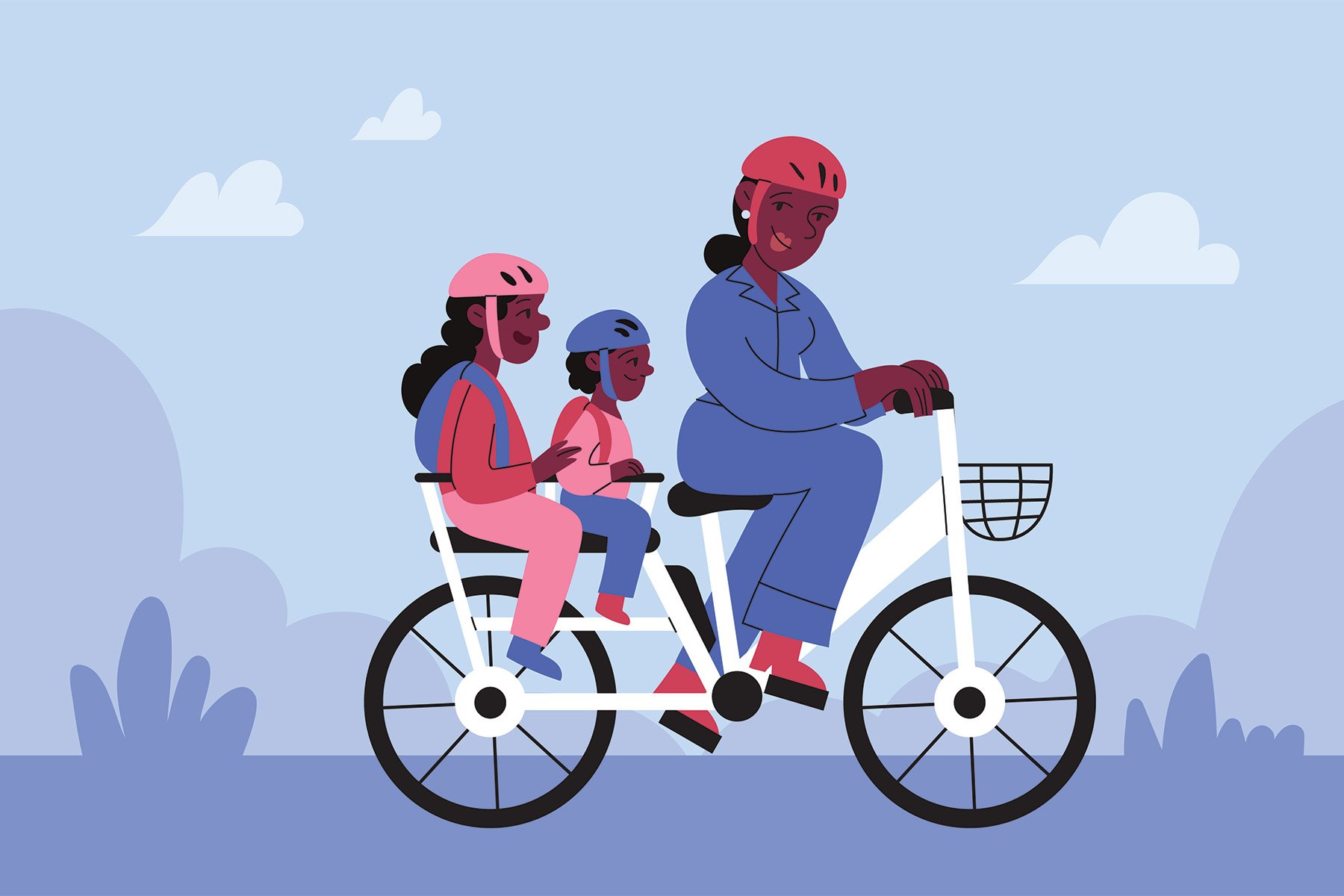Participants in a guaranteed income program in Cambridge, Massachusetts, were able to save more money, cover emergencies and had more time and space for parenting, which in turn positively impacted their children’s educational outcomes, according to a program assessment from the Center for Guaranteed Income Research at the University of Pennsylvania.
Cambridge Recurring Income for Success (RISE) was an 18-month guaranteed income program that offered 130 single caregivers $500 cash payments from September 2021 to February 2023. Participants — 96 percent of whom were women and 62 percent of whom were African American — had to have an income below 80 percent of the area’s median income to be eligible. Cambridge is just outside of Boston and home to Harvard University.
Participants’ ability to cover $400 emergencies increased from 33.8 percent at the start of the program to 41.5 percent six months after the program, though it declined to 30 percent by the program’s ending. Savings improved for participants between the 12 and 18-month marks, though most said their savings were stable throughout the program.
Mean housing cost burden, or the percentage of one’s income that goes towards housing needs, decreased for the RISE recipients from 50.5 percent to 41.8 percent by the end of the program. Full-time employment for participants increased from 36 percent at the baseline to 40 percent by the 12-month mark.
The pilot’s success validates supporters’ belief that guaranteed income programs help families and don’t encourage people to rely solely on the payments.
“Quite consistently, we see across all of these programs that people spend the money to support their families. No one’s going to quit working for $500 a month,” said Stacia West, an associate professor at the University of Tennessee College of Social Work and the director and co-founder of the Center for Guaranteed Income Research.
“I think one of the major highlights out of Cambridge is this ability to save. Having $500 in your bank account can mean the difference between being able to get that tire fixed or not being able to make it to work, and that’s huge for so many American families,” West said.
Another important assessment of the program was on guaranteed income’s impact on participants’ sense of self, she said.
“When we introduce a guaranteed income, does that free up a little bit of mental space, or emotional, or even spiritual space that you can actualize as a human and not have all of your time completely spent on day-to-day survival?” West said. “Whenever you’re on the margins, and you’re dealing and negotiating a lower income, you just have less time and space to think about yourself and your own dreams and your own goals and your own agency.”
Results from Cambridge RISE show the extra money created time and space that participants spent with their children, and the children of RISE recipients had higher grades than their peers whose parents and caregivers were in a control group that did not receive funding, the report said.
At the start of the program, 59 percent of participants reported being able to help their children with hands-on learning activities such as building projects. That figure peaked at 78 percent by the program’s six-month mark and concluded at 71 percent. Fifty-two percent reported being able to do arts and crafts with their kids. That figure peaked at 74 percent by the program’s six-month mark and held steady at 64 percent for the 12- and 18-month marks.
This freed-up time allowed one recipient, identified in the study only as Veronica, to make arts and crafts and have Sunday dinner with her daughter.
“If I was not in my situation [with RISE], any way of trying to get extra money, I would be most likely working, which would then take my time away from my daughter and myself,” Veronica said. “This is not just benefiting me, it’s benefiting my daughter. … I get to show her things and that betters her.”

The results showing increased time and space for parenting stood out to former Cambridge mayor and current city council member Sumbul Siddiqui, who initiated Cambridge RISE during her time as mayor.
“I just think about my mom and dad [who] were just constantly working multiple jobs and how hard that was,” Siddiqui said. “Quality time is so important.”
Siddiqui, who became the first Muslim mayor in Massachusetts when elected in January 2020, looked deeper into direct cash payments once she saw how much Cambridge residents remained in need even after she launched the city’s over-$5 million COVID-19 disaster relief fund.
That’s when she learned about the network organization Mayors for Guaranteed Income and their $500,000 grant for mayors to launch these programs in their cities if they could match the donation. Siddiqui, in partnership with Cambridge Community Foundation, Cambridge Economic Opportunity Committee, Cambridge Housing Authority and community organizations Just-A-Start and Up Together, raised $1.6 million to launch Cambridge RISE. It’s been rewarding, she said, to see the impact the program has had on people and the way they view government officials.
“I was walking down the street the other day and, literally at a cross section, a woman got out of her car and just to say, ‘Thank you for everything. The RISE program has helped me so much.’ And literally the light was about to turn green, but she quickly did that. That was so meaningful to me,” Siddiqui recalled. “They just really appreciate that City Hall is looking out for them in this way. And I think it’s pretty gratifying to kind of see how people are viewing government as a result.”
Mayors for Guaranteed Income, a network of local leaders, was founded in 2020 by Michael Tubbs, the former mayor of Stockton, California. Tubbs launched the country’s first mayor-led guaranteed income program. The organization has grown to nearly 150 mayors, expanded to Counties for Guaranteed Income with about 40 elected county leaders and launched a 501(c)(4) social welfare organization called United For A Guaranteed Action. The group has also launched over 60 pilots, including Cambridge RISE, director Sukhi Samra said.
“In addition to funding, we also provided robust technical assistance in terms of pilot design and also in terms of communications,” said Samra. She said her team helped the Cambridge RISE group “communicate about your pilot in a way that’s responsive to your community, in a way that meets your community’s needs.”
Samra said their work has been able to shift public opinion to be more favorable towards $500 to $1,000 monthly guaranteed income, but there is still some pushback.
“We’ve gone from the radical to the mainstream, but I think a lot of the opposition that we’re experiencing is still the same. It’s really rooted in these racist and sexist tropes about what poor people do when they’re given money, who is poor and why they’re poor in the first place,” Samra said.
Opponents of guaranteed income programs worry giving people cash payments with no strings attached will discourage them from working. West said studies prove otherwise. Still, guaranteed income programs have been outlawed in Arkansas and Iowa, and similar legislation has been proposed in Arizona and South Dakota.
In spite of this, experts say the movement for guaranteed income is still picking up steam across the country. California was the first to launch state-funded guaranteed income programs in November, and recently proposed legislation seeks to establish a council to study guaranteed income programs. Legislation is advancing through the Minnesota state House that would give residents living below 300 percent of the federal poverty level $500 per month.
Harris County, Texas, is launching its first guaranteed income pilot this spring. And, last fall, Cambridge was able to expand its pilot to create the Cambridge Rise Up Program using American Rescue Plan funds. The new program is offering $500 per month for 18 months to all families that have children and income under 250 percent of the federal poverty level. It’s the first guaranteed income program with no lottery system and currently has nearly 2,000 participating households.
“I think that municipalities and states are seeing the benefits and the return on investment that it may have and are ready to scale it up at the state level and make some investments,” West said.







